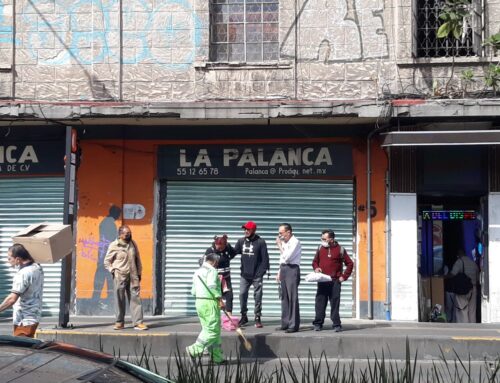Yesterday my trainer made a comment that we the attendees are trying to better ourselves, as opposed to those “sitting home on welfare.” It is interesting that so many people who consider themselves very egalitarian, who would never dream of insulting someone because of their skin color, will regularly bash the poor. I spoke to the trainer after the comment. I do not… know if it made a difference. There was also a comment made that our clients “get SSI for their kids when the kids aren’t really disabled.”
I’d like to give some information about this. Overpayments in the SSI program between 2008 and 2010 were $3.3 million. Underpayments–where people do not get what they are legally eligible to get– were $1.2 million. The trainer was not at all upset about the underpayments.
SSI is a poverty reduction tool. All nations are SUPPOSED to have poverty reduction tools in the form of actual cash to citizens who cannot otherwise earn income. The idea that SSI and other cash transfer programs are some kind of gift is an idea drilled into society through the corporate owned media to keep everyone searching for paid jobs that do not exist.
To put the “overpayments” in perspective–NYC alone spent $2 million in the same time period to needlessly fingerprint its Food Stamp recipients. The new Yankee Stadium in NYC has cost taxpayers $4 BILLION in lost tax revenue that the developers got from NY state without you being consulted. And the Federal Reserve in nearly the same time period gave $7.7 trillion to the big banks at bargain interest rates that no bank will ever give you. But the only thing that human services trainers (paid for with tax money) are upset about is the poor getting $3.3 million more than they are scheduled to. Food Bank for NYC (human services people really love food pantries) ended 2008 with profits of $8 million.
The phenomenon of ineligible children and adults getting SSI exists. The solution is very simple if you understand the reason for it. The program available to families without disabled children, TANF or “welfare” does not provide enough cash to reach to even 50% of the poverty line in any state. Humans are driven by self preservation. Any intelligent human will attempt to apply for a more reasonably generous public program if they cannot survive on TANF. If you want to eliminate “overpayments” in SSI, ask your federal legislator to finally dismantle TANF and replace it with a decent income transfer program. At minimum, the payments in TANF have to be raised to the poverty line and the work requirements have to be eliminated (the work requirements cost taxpayers more than the benefit itself).
It really is about time that we stop blaming Americans for their descent below the poverty line when we are already aware of how the powerful and well connected have run the economy into the ground to grab more for themselves.





Your boyfriend (Johnny Occupywallstreet Rabuse on facebook)recently berated one of our friend's fb page because of this video:
http://www.breitbart.tv/homeless-lady-with-15-kids-somebody-needs-to-pay-for-all-my-children/#.Ttf9TetdTRU.email
I'm curious to know, what's your take on this issue?
Thanks for taking the time to share this with me. Here is my take on it, after having watched the link. First, admittedly the mom isn't being appropriate with her kids, or with the adults around her. What observers have to keep in mind is a) what external experiences have gotten her to this point? My guess is that if you know anything about welfare, or having to ask an agency for assistance, that she's had her fair share of mistreatment. Mistreated people grow pretty thick skins and bad attitudes. As someone who has experience working within social services agencies, I can't imagine this woman's despair. Only a week ago, it took me three hours to get permission for and coordinate a gas voucher of $15 for a mother who needed to go pick up her paycheck. My agency only approved $15, which it said would be "enough for mom to get there." The reasoning was that once she cashed her check, she could buy the gas to come back. True, but this left me and others biting our nails hoping that it would be enough for the 50 mile trip–social services was cutting it pretty close. We also hoped that nothing went wrong with the check cashing, or she'd be stuck there.
The above is merely an example to show you that getting help is usually a lot of work and stress for amounts that won't solve problems.
That said, I recognize that the mother must bear responsibility, but there is no way for her to fulfill her role as mother if she has no money to meet the basic needs of her children. She cannot bathe them if she cannot buy soap. She cannot feed them if she cannot buy food, and so on. Society cannot condemn people who do not have access to income.
As far as the obvious criticism–that the woman "shouldn't have had so many children" it is my personal and professional opinion that that subject is a moot point. That point can be made in theory at the outset of planning societal programs, and people will argue about how many kids is too many forever, and no conclusion can be objectively reached. Arguing about whether this woman (and her man) should have had so many is not fair to these children. They are here now, they deserve a childhood, and they need to eat, sleep warmly, and be educated. I doubt that there is any observer who would be willing to advocate for shooting all of the children: if there is no one who thinks that ending their lives now is a solution to "the problem," then by logic that means that we observers agree that they need to be GIVEN the means to survive and thrive. To withhold the means will not only be inhumane, it makes no sense fiscally, because we spend more for broken, depressed, frightened, ill humans than we do for happy, safe, healthy, enthusiastic ones. Ever hear the saying, you get what you pay for? It's something like that…
Regarding the same matter…
One last point is a mental exercise to think about this situation: What if before watching the clip of the family, the observer were to pretend that children were highly prized in this country for both their potential to grow up and invent things and solve problems, and for their economic value (they grow up to work, and their growth and nurture requires that money be spent in the economy). Would thinking of them this way make the observer more interested in saving them?
Finally, consider that statistically, this family is an anomaly–the average fertility rate for U.S. women is 2.1 kids–unhealthily low for our replacement needs–and that the fertility rate for women who receive public aid is also 2.1–no higher than the general rate. The nation does need more births (see The Empty Cradle by Phillip Longman). Perhaps this is not the best way to raise birth rates, but other women are not answering the call.
Each one of the twelve kids on the tape have the potential to be someone amazing. But the clock is ticking. Do we want to sacrifice them to poverty and want as a tool to "deter" people from going on the dole? The best way to deal with them is to embrace them as if we were happy that they are here, maintain them so that later they grow into good adults, not broken ones. In order to help them, we have to help mom too. Even a "bad" mom (and we don't know that she is or isn't yet) has to do an awful lot of work to keep these children alive.
I hope that I explained my opinion well. Let me know. P.S. I have not seen Johnny's comments about it.